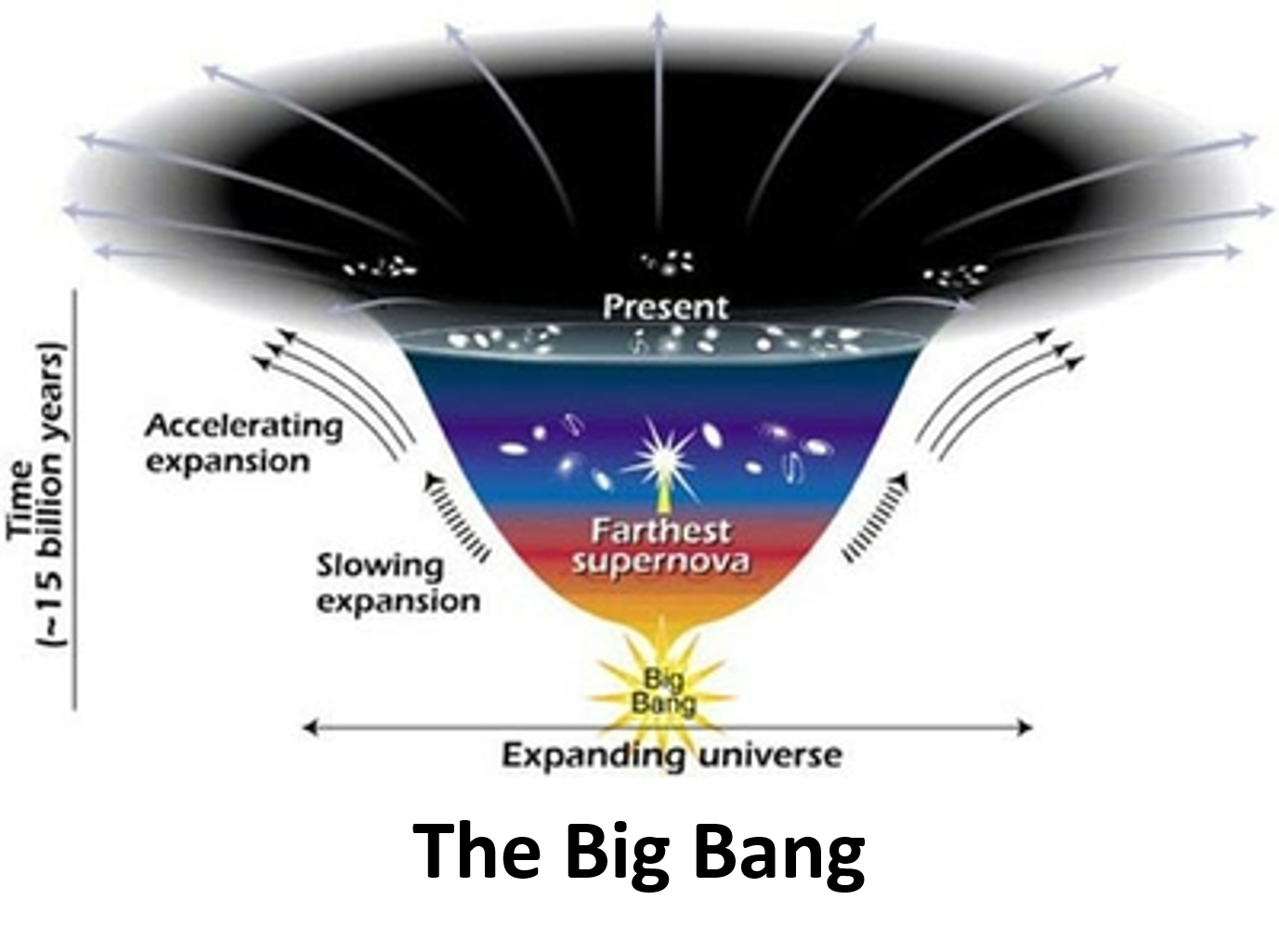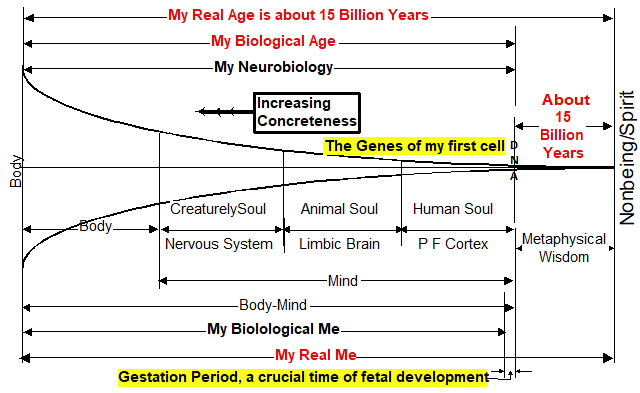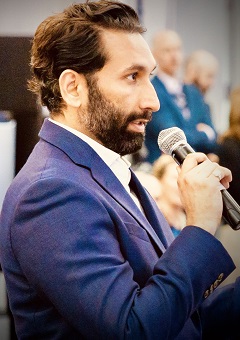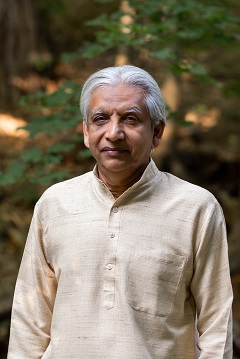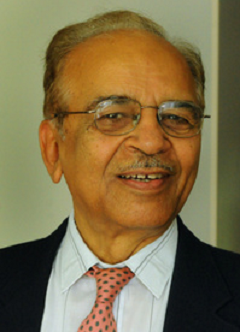|
|
|
Spiritual Heritage Education Network Inc. Graduate Degrees in Neurobiology of Transformation: Discovering Purpose, Health, Happiness and Global Peace Ubiquity University is partnering with Spiritual Heritage Education Network Inc. to offer graduate degrees in Neurobiology of Transformation: Discovering Purpose, Health, Happiness and Global Peace (MASc, PhD and MASc/PhD). |
|
Transform Deep Down to the Genes |
GO DEEP to GO FAR
Graduate Degrees in Neurobiology of Transformation: Discovering Purpose, Health, Happiness and Global Peace
Ubiquity University is partnering with Spiritual Heritage Education Network Inc. to offer graduate degrees in Neurobiology of Transformation: Discovering Purpose, Health, Happiness and Global Peace (MASc, PhD and MASc/PhD) |
|
SHEN OFFERS EDUCATION TO GLOBALIZE THE HUMAN MIND
The SHEN education is fully compliant with World Health Organisation's definition of Health:
"Health is a state of complete physical, mental and social well-being and not merely the absence of disease or infirmity" World Health Organisation, 1948 |
Ubiquity University offers graduate degrees in Neurobiology of Transformation in partnership with Spiritual Heritage Education Network Inc. (SHEN), established in 2000 In Ontario, Canada. SHEN aims to study, research, deliver, and promote transformative education worldwide to integrate fragmented humanity. Integrative education can use many narratives of antiquity's spiritual wisdom to modernity’s natural, social or life sciences. Our degree programs use a universally accessible language of the body, the science of neurobiology, as their medium of instruction. Our programs are designed for students with good communication skills in general and in the formal body language of neurobiology, as evidenced by a bachelor's degree in a scientific discipline, preferably in Health or Life Sciences. You may also be admitted if, in the opinion of program directors, you are a mature student with a strong commitment to learning scientific material. In our degree program, students explore the dynamic relationships between the human body and its inner and outer environment. Foundational cognitive neuroscience and psycho-biochemistry courses pave the way for a deep dive into theories and practices drawn from philosophy, psychology, and practical spirituality. The aim is to empower individuals to access the full potential of their body and brain, fostering a lifestyle characterized by purpose, health, happiness, and global harmony. The student will learn how to undergo total regeneration, from the outer body to its genetic core of every cell, to lead an exuberant, purposeful, healthful, focused, inclusive and abundant life. In addition, the student will learn how to professionally assist others in managing various facets of life and undergoing similar transformations, creatively extending the scope of their careers beyond health care to holistic well-being. |
|
|
|
In the beginning, to be sure, nothing existed, neither the heaven nor the earth nor space in between. So Nonbeing, having decided to be, became spirit and said, “Let me be!” He warmed himself further and from this heating was born fire. He warmed himself still further and from this heating was born light.
Taittiriya Brahmana II, 2, 9, 1-2 And the earth was without form, and void; and darkness was upon the face of the deep. And the Spirit of God moved upon the face of the waters. Gen 1:2) |
|
“Children’s health-tomorrow’s wealth" WHO |
Genes define the biological being of Body, Mind and Brain |
"Prenatal health-a lifetime gift of purpose, health, wealth, happiness, fulfillment and harmony to the newborn" SHEN |
|
Nothing can come out of nothing. The universe, too, has an underlying reality. Being specific about the reality underlying the universe is a fascinating puzzle. Our language, unfortunately, is not equipped to express paradoxical realities. How can a Nonbeing exist when nothing existed? How does a Nonbeing decide to be? What is the Spirit of God? How can the Big Bang resulting in an expanding universe now 92 billion light years across ensue from a point? These are profound mysteries that will continue to captivate us. But through systems thinking, we can embark on a journey to decode them, satisfying our innate human curiosity. A point has zero width, zero height and zero depth. It is perceptible. What is being said here is that the perceptible universe is from something which in itself is imperceptible. We know that nothing can come out of nothing. Therefore, this imperceptible reality underlying the universe is not nothing. It is just not a thing also. If it is not a thing, and it is not nothing, then what is it? It is a no-thing. We cannot know it because we can only know what is perceptible. A thing, by its nature, has materiality and occupies space. The reality that underlies the material universe, however, defies these characteristics. It has no materiality and occupies no space. Yet, everything material that occupies space emerges from this intangible, spaceless source. It is spirit. Spirit is something with no materiality, no spatial occupation. It is a concept that can be represented by a point, a symbol of its infinite subtlety and lack of concreteness. Everything concrete, then, emerges from this infinitely subtle and abstract essence. In the above metaphysical diagram under discussion, the point on the right represents the subtlest principle, called the Spirit or Nonbeing. It becomes concrete, or it grows to become concrete. A vertical line on the left of the Spirit represents a principle with a certain degree of concreteness. As you go to the left, the degree of concreteness increases. What am I? I am the spirit that grows to become perceptible, first as my mind and then as my body. The external body is fully perceptible. Its degree of concreteness may be said be 1.0. Mind in the interior of the body is perceptible to itself. It is subtler than the body. The degrees pf concreteness of the body and mind keep changing from point to point. The DNA molecules are subtler than any part of the body and the mind. It is the beginning of my mind, body, and brain; the brain is merely the physical correlate of the mind. It took almost 15 billion years for the Nonbeing spirit to grow to become the first cell that I was at conception. My biological age is minuscule compared to my real age from when I started to exist as a part of the universe to now. Traditionally, mind has been subdivided in three faculties. The subtlest faculty of the mind is the intellect, the human soul in one biblical terminology, Adam in another, buddhi in Vedic wisdom, , aql in Islamic wisdom, neshamah in the Kabbalah, and the conscious by Freud. I am human because of it. Little creatures and animals do not have it. It is fully conscious. To be fully human, I must use it the maximum extent possible. Its neurological correlate is the prefrontal cortex. Then comes my ego identity, in biblical terms the animal soul or Eve, ahamkara in Vedic wisdom, animal soul by Ibn Sienna, ruah in Judaism and the subconscious by Freud. It deals with the subconscious life of survival emotions. Its physical correlate is the subcortical neural structures called the limbic brain of which the amygdalae are two most notable parts. The third faculty of the mind is the sensory faculty. It senses what happens in the inner and the outer world and acts on its perceptions. Its inner work is in connection with running our physiology, and it is unconscious; this work is related to our physical survival. The outer work may be subconscious or conscious. In biblical terms, it is called the creaturely soul or referred to as the serpent. It is called manas in Sanskrit, vegetative soul by Ibn Sienna of Islam, nefesh in Judaic wisdom, and the unconscious by Freud. Its neurological physical correlate is the nervous system, including the brain stem. The way we run the inner unconscious or autonomic work of the nervous system has a huge impact on the way we run our subconscious and conscious faculties of the mind, our health, happiness and harmonious existence in society. We need to pay special attention to the prenatal work of the autonomic nervous system of the fetus if we want our children to enjoy a life of purpose, health, happiness, and social harmony. |
Neurobiology of Transformation
Discovering Purpose, Health, Happiness and Global Peace
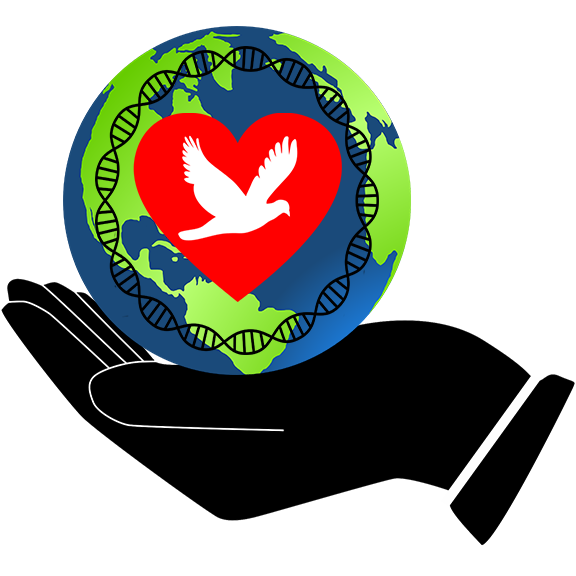 |
Our genetic blueprint shapes who we are, yet we have the capacity to regenerate and mould our genetic destiny.
Embark from the Body,
Journey to the Genes,
Unlock Your Infinite Potential. |
| Genes define us, but we design them | |
|
At conception, we inherit a set of genes from our father and one from our mother. Likewise, they get their genes from their parents, who get them from theirs, and so on in an unbroken chain that goes back to the first single-celled life on the planet some 3.8 billion years ago. Genetic inheritance and mutation underlie the evolution of immense diversity of life forms worldwide. A single-celled life form has a mind but not a brain. It senses and acts. The mind of a single-celled life form is in its genes. Genes play a crucial role in an organism's survival: its physical identity, protection, growth, and perpetuation. Genes have an unimaginably large storehouse of memory. The encoding of this memory determines how an organism looks and behaves. The protective role of genes begins with our immune system. Genes encode proteins essential for an organism’s immune function. They identify and neutralize potentially harmful foreign intruders into our bodies. Yet they protect a single-celled embryo at the onset of pregnancy with a protective shield of maternal tissue, called decidua, with genes responsible for recruiting immune cells epigenetically switched off. Epigenetics is gene expression that turns itself off or on to various degrees as the gene plays its part. In addition to the internal intruders, genes help protect an organism against fatally dangerous external predators by preparing the body to mobilize the physical energy required to fight or flee. If the fatal predator is a reality, the mobilized energy is used up, but the unnecessary energy mobilization becomes problematic if it is only an imagination. The genetic protective mechanism against potentially harmful or unpalatable psycho-social and socio-economic conditions is similar in quality, if not intensity, to that for fatal predators. This genetic mechanism keeps us in perpetual energy mobilization without ensuing activity that burns up bodily fuel to create energy. In neurological terms, this natural genetic condition is called sympathetic dominance. Besides mobilizing physical energy for activity readiness, our sympathetic dominance keeps our minds wandering aimlessly; the higher the sympathetic dominance, the higher the intensity of mental distractions. By minimizing or eliminating our natural state of sympathetic dominance, we progressively transform the body and mind and epigenetically switch off the genes responsible for our sympathetic dominance. |
|
Dr Bhuvan Awasthi. PhD
|
Dr Bhuvan Awasthi is a cognitive neuroscientist, with research expertise in the science of human consciousness, emotions and decision making. Dr Bhuvan has degrees in consciousness studies, cognitive science and life sciences from Australian and Indian institutions, as well as yogic and spiritual training from the contemplative traditions of India. In recent years, he has worked across North America (USA, Canada), South America (Uruguay), Europe (UK, Denmark, Russia), Asia (China, India) and Australia with various organisations. Over the last two decades, he has been applying cognitive, behavioural and neuroscience research for evidence-informed practices in spirituality and mind-body interventions. His research on meditation, consciousness, cognition, emotion and well-being has been disseminated via international peer-reviewed outlets (journals, conferences), workshops and public talks. Dr Bhuvan is based in Ottawa, currently working as a Senior Behavioural Scientist with the Canadian Federal Government. |
|
Dr. Santwana Kar, PhD
|
Dr. Santwana Kar is based in Basel, Switzerland and has lived in Africa, India and U.K before arriving in Switzerland; her life split between three counties and six cities. She speaks four languages. On a scholarship from India and U.K, she completed a Ph.D. at Univerisity of Cambridge and a diploma in Business Management from London Business School. She published a paper from her PhD work that shed first light on the working of tau protein, a major player in Alzheimer’s disease. Having worked in the Pharma industry at three of the top five global companies , she has extensive experience of diverse therapy areas, specialising in Neurosciences. About 15 years ago she started her first novel and has published short stories and articles and is working on her third novel. Her first novel is in the process of being published. She lives in Basel and also has a bachelors degree in Hindustani Vocal music. |
|
Dr. Pradeep Kumar, MD
|
Jivasu is an Indian physician and founder of the Somatofulness teachings. Somatofulness is discovering the body’s power to heal trauma, attain mental health, and arrive at self-realization. Along with his wife Karen, a Canadian doctor, he served in the remote villages of the Indian Himalayas for 11 years. Later he studied acupuncture in Sri Lanka and Canada and mind-body medicine at Harvard Medical School. He taught acupuncture, mind-body medicine, Yoga, Meditation, Kundalini Yoga, and Nada Yoga teacher training in Canada, Rishikesh, India, and other countries. He is the author of many yoga training manuals and books, including Naturality; Somatofulness or awakening of the body’s power; How to raise a happy, wholesome, and body-wise child in a turbulent world, and Meditation – The art and science of relaxation, awareness, and expansion of awareness. |
|
Dr. Shiv Talwar, PhD
|
Dr. Shiv D. Talwar is a founding member of Spiritual Heritage Education Network Inc. He also has served on its Board of Directors as its president since its very inception in year 2000. Shiv received his undergraduate degree in Civil Engineering from Punjab University in India, Master’s in civil engineering from Lehigh University in Pennsylvania and a Ph.D. from the University of Waterloo in Ontario. During his professional career, he taught at Thapar College of Engineering in Patiala, India and served as the Coordinator of Civil Engineering at Conestoga College in Kitchener, ON, Canada. Shiv's education in spiritual and ethical direction began informally in India on early morning walks when his parents used to engage him in discussion on such matters. This informal introduction was followed by some excellent formal education in scheduled courses at school. It is still continuing, thanks to his spiritual mentor Late Swami Vishwatma Bawra. This education continues to enrich his life and shape his values in a significant way. Shiv researches, develops, delivers and promotes education in the wisdom underlying the religious and scientific heritage of humanity to cultivate the spirit of inclusion and love for all existence. Shiv’s work is intended to be used for raising consciousness for the care of each other and that of the planet on which we live. |
|
1. Pradeep Kumar MD 2. Shiv Talwar PhD |
|
For MASc or MASc/PhD A bachelor's degree in a scientific discipline, preferably in Health or Life Sciences, with good communication skills or a mature student with a strong commitment to learning advanced scientific and metaphysical material, on approval by the co-directors For PhD MASc in Neurobiology of Transformation
|
| One credit is equivalent to a one hour per week course running for a duration of fifteen weeks. |
For MASc 16 credits compring of compulsory courses in Neirobiology of Transformation For PhD 13 credits of elective courses in Neirobiology of Transformation For MASc/Phd 24 credits comprising of 16 credits of the same compulsory courses as for MASc, and 8 credits of elective courses in Neirobiology of Transformation |
|
For MASc 14 Credits For PhD 47 Credits For MASc/Phd 55 Credits |
|
|||||||||||||||||||||
|
Our graduates will expand their career horizons with meaningful additional opportunities in the follwing fields:
Your Journey Starts Here Unleash your innate potential with an M. A. Sc. in Neurobiology of Transformation. Join a community dedicated to transforming lives and creating a world where purpose, health, happiness, and harmony prevail. Ignite Your Potential. Embrace The Science of Life. |
|
1. Our Faculty
2. Our Program
3. Convenience and Economic Considerations
4. Expanding your Personal, Professional, Social and Global Horizons 5. Futuristic, Holistic and Scientific Vision of Our Degree Program
............End of Ubiquity Landing Page..................... |




